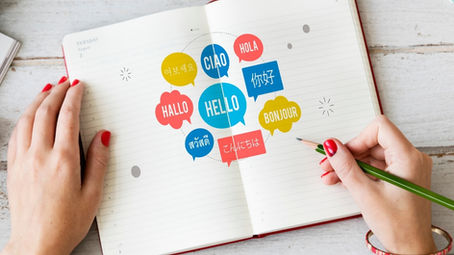top of page
BLOGS & RESOURCES
We understand the importance of learning a new language and believe that everyone should have the opportunity to do so. Our teachers are experienced, passionate,
and knowledgeable and have the skills to help you achieve your language goals.
Search


The Role of Discipline Over Motivation in Language Learning Success
When you decide to learn a new language, you begin a journey that requires time, patience and consistent effort. You may feel excited in the beginning because the idea of speaking a new language sounds impressive and useful. However, language learning success does not happen in a few days or weeks. You need regular practice and a clear direction to improve your skills properly. Many learners focus mainly on motivation but they do not understand the deeper role of discipline.


Why Group Language Classes Work Better Than Self-Study
These days, learning a new language is considered an important skill. That is because it opens many doors in education, career and daily communication. Many people try to learn a new language either by studying on their own or by joining a group language class. However, both methods have their own strengths but also their limitations. In this article, we will discuss why group language classes work better than self-study for most learners. You will learn the basic difference


Why English Has So Many Synonyms for the Same Meaning
A synonym is a word that has the same or almost the same meaning as another word. These synonyms make English more flexible and more useful for different types of communication. They also help people express their ideas with better clarity and tone. English is a language that has a very rich and wide vocabulary. Many learners feel surprised when they notice that English has several words for one simple meaning. This happens because English has grown over many centuries and h


How Wars, Trade, and Religion Shaped World Languages
Language is one of the most important tools for communication, culture, and knowledge sharing. It helps people express their thoughts, practice their traditions and connect with others. There are many factors that influence language but wars trade and religion have played the most significant roles in shaping the languages we speak today. In this blog, we will understand how these wars affected the language growth, the creation of new languages and the spread of regional dial


J&C’s Unlimited Learning Promise: Guaranteed Success in French and More
We believe that language learning should be stress-free, reliable and completely focused on real success. At J and C Language School , we stay committed until the desired result is achieved. We do not see education as a short-term transaction but as a long-term responsibility that we willingly accept. We ensure that the effort, time and money invested by the learners are always respected and protected through this promise. What is the Unlimited Learning Promise? The unlimited


How the French Language Was Born from Latin
The French language has a very interesting history that connects deeply with the ancient Latin language. Many learners often wonder how French developed and why it shares similarities with other European languages. Understanding the origin of French can help interested candidates and even students learn the language with better clarity and cultural awareness. According to the latest report of the Organisation internationale de la Francophonie, there are about 321 million Fren
START YOUR LANGUAGE JOURNEY TODAY
VISIT US
bottom of page
